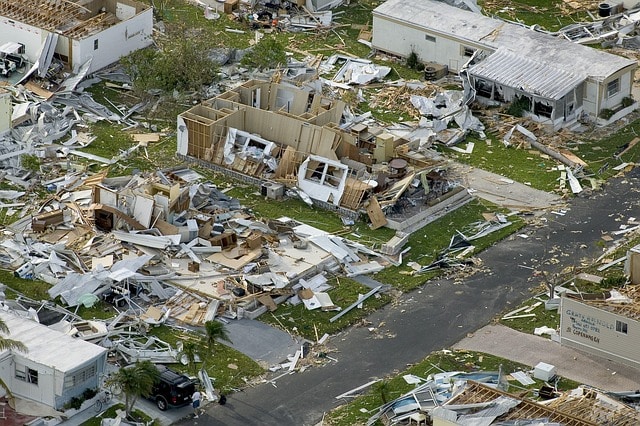During the course of its 4.5 billion years lifespan, the earth had been subjected to various natural disasters from having a planetoid impact earth just a few hundred thousand years after the earth formed, resulting in the creation of the moon, to the Volcanoes erupting in Hawaii which is ongoing at the moment. Most, if not all the natural disasters that we encounter today are the result of earth’s active geology and not because of some extraterrestrial influences. While it is hard to think of natural disasters such as volcano eruption, hurricane, earthquake or cloudburst, in positive terms, it should be pointed out that some of the natural disasters do come with positive benefits. That’s why we need to take a closer look at the same.

Positive impact of natural disasters:
- Increased fertility: The one outcome of some of these natural disasters such as volcanic eruption, hurricanes and even earthquake is the resultant flooding and the fact that all of these end up bringing several nutrient-rich minerals from deep down below. As a result, the floodplains are always considered to be fertile, a fact that one of the ancient communities, in Ancient Egypt put to good use. In fact, they developed their whole society around the annual flooding of the Nile. Granted, it may be hard to think of natural disasters in these terms but be it a volcanic eruption or a cloudburst, it all results in increased fertility of the soil, thereby enabling greater productivity, in terms of agriculture. In fact, Pompeii, the scene of the great Vesuvius eruption continues to have some of the most fertile soil in all of Italy.
- Redevelopment: Often, most of these natural disasters lead to widespread destruction; as a result, local communities often spend more to build newer infrastructure and in the process, this improves the quality of life for the local inhabitants.
- Community interactions: It often takes a disaster to bring the whole community together and in the case of most natural disasters, people often come out and help one other, and even go to the extent of offering free board and lodging until the other person can find their feet. For example, in Hawaii, which is the scene of volcanic explosions at the moment, whole communities have come together to both support and help each other during this time of crisis.
Negative impact of natural disasters:
- Loss of life: Natural disasters do not announce themselves in advance and as a result, there is very little leeway to prep for one. The only exception to the above statement happens to be a hurricane or a cyclone. Most natural disasters often result in a huge loss of life, depending on the strength of the natural disaster in question. For example, the Asian tsunami which took place in 2004 nearly killed over 250,000 people and all in the course of a single day.
- Humanitarian crisis: Often natural disasters such as both the Asian tsunami and Japan’s tsunami caused widespread destruction and even disrupted essential transportation routes. This led to a complete breakdown in transportation and lack of essential supplies which were later on airlifted to these disaster zones. The humanitarian cost of any destruction is quite high which is why governments worldwide need to take pre-emptive action to help offset the same.
- Health: With food and essential supplies, most of the survivors in these disaster zones would have little or no access to medicine. As a result, most of them would be susceptible to infection and various health risks. This can even cause a pandemic if not attended to in the first place. This is one of the reasons why most first responders landing in any disaster area carry medicines and essential antibiotics that can help treat those in need.
These are some of the positive and negative effects of natural disasters. Please note that while it Is not possible to eliminate natural disasters altogether, we can at least take some pre-emptive actions to help mitigate some of the risks. Weathering a natural disaster is hard enough without wondering where your next meal is coming from. It is important that you take all the required precautions to help protect yourself better.
- Tulip Mania – The Story of One of History’s Worst Financial Bubbles - May 15, 2022
- The True Story of Rapunzel - February 22, 2022
- The Blue Fugates: A Kentucky Family Born with Blue Skin - August 17, 2021
